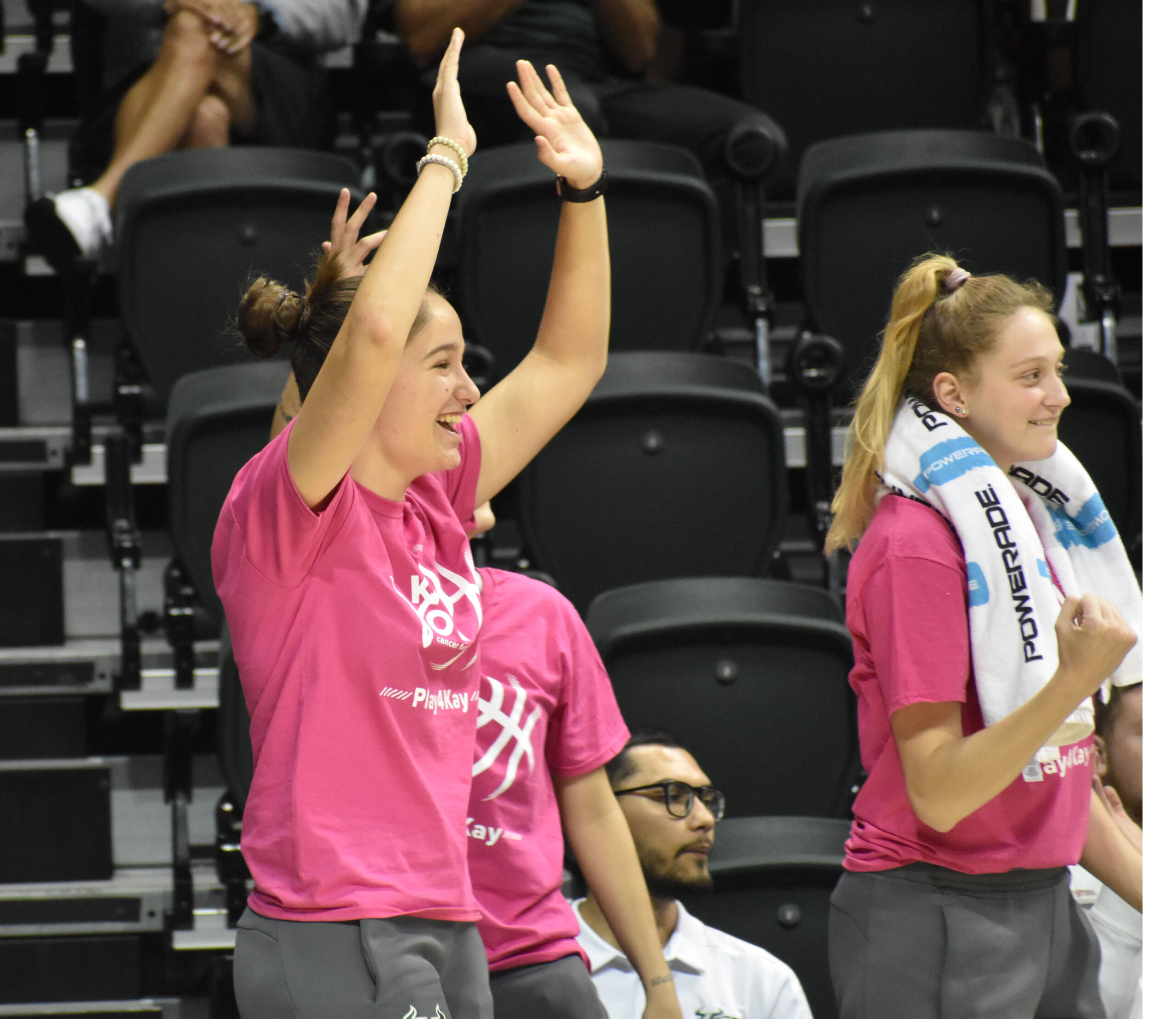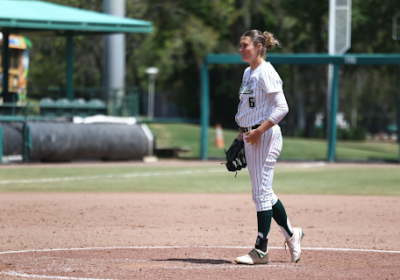Never saying quit

Part of the human experience — arguably most of it, even — is finding your passion and chasing the associated dream.
For Silvia Serrat, that passion was playing basketball — and it started at a young age, with the Banyoles, Spain, native first playing at the age of 4 with a soccer ball.
She eventually used the soccer ball for its intended purpose, but switched back to basketball after one year, and from there, the future looked bright.
“I left home when I was 14 because I wanted to play pro, and I was playing Division II in Spain,” Serrat said. “I wanted to come, study for four years and play [at a U.S. university], then when I graduated, go back to Spain to play Division I.”
Serrat caught the attention of USF coach Jose Fernandez, amongst others. She was a five-star recruit, after all.
“She was a kid that — her length, her athleticism,” Fernandez said. “She could rebound, play without the ball — she was just so active.”
Unfortunately, sometimes part of the human experience is having those dreams crushed in the worst ways possible.
Serrat sprained her left ankle prior to what would have been her freshman season of 2017-18. She had surgery, but could have theoretically played by February, though she and Fernandez decided not to use a year of eligibility at that point.
That summer, Serrat’s national team called, and she obliged. But in the third practice, she went down with an ACL injury on her right knee. She had surgery in Spain in June 2018, then again to clean it up after returning to the U.S. She missed the entire 2018-19 season as a result.
“After that, I started running, I started doing things,” Serrat said. “I was just saying, ‘It feels weird. I mean, I know it’s going to hurt, but I know there’s something still not working.’”
An MRI revealed Serrat had a torn meniscus and she had surgery again in November 2019.
Shortly after the surgery, she started running again and felt something still wasn’t right. An MRI revealed she had arthritis, bone edema and cartilage damage.
“And I was like, ‘Oof, OK, well how do we fix that?’” Serrat said. “My first thing was, ‘Does that mean surgery again? How long is it going to take me to get back?’
“And they said, ‘I don’t think surgery is the solution this time.’”
After consulting with at least a half dozen doctors as well as her parents, Serrat decided that rather than getting injections that may allow her to play for a few more years at best, but still likely keep her from her ultimate goal of playing professionally, her move should be to medically retire.
Though they only began once Serrat came stateside, the constant barrage of injuries and setbacks was not the first challenge she faced in her lifetime. Diagnosed with Type 1 diabetes at the age of 6, she had a few more considerations to factor in than the average basketball player before her career even got off the ground.
“It was hard when I came here, because before, I had a routine, and I would do the same every day,” Serrat said. “Practice at 6 a.m. and then at 4 — the same every day. When I came here, it was like, ‘Today, we have weights at 11, then tomorrow at noon,’ and it was hard.
“But when you get used to the routine and everything, you just need to know what you eat and get the right insulin.”
While it’s possible that diabetes has made it more difficult for her to recover, as diabetics are prone to longer recovery times, Serrat doesn’t believe it’s made her more injury prone, nor is there any medical evidence saying that.
“They just say it takes more time to heal,” she said. “If your sugar levels are in range all the time, it’s easier. If not, it takes longer.”
Serrat’s blood sugar levels are relatively good, though. During Serrat’s freshman year, her A1C — the average of a person’s blood sugars over the previous three months — was more than 7 percent. Right now, it’s 6.5 percent, which is generally considered a good number for a diabetic, though a person without diabetes would be considered “normal” at 5.7 percent or below.
Regardless, Serrat has had to watch from the sideline for three straight years — and has done so pretty much always in some sort of pain, to the point where just the act of sitting down becomes uncomfortable after a short time.
But she’s as active a member of the team as any other player — perhaps one of the most energetic on the bench even — frequently jumping up and high-fiving teammates after 3-pointers.
“Life’s always going to throw you adversities,” Fernandez said. “Everybody has bad days. Not everybody wakes up in the morning feeling great, but you’ve got to go to work. You don’t go to work, you don’t do your job. You don’t do your job, you don’t get paid.
“It just shows what type of character she truly has.”
It’s an attitude and work ethic that her teammates look up to.
“Just to know that she always has her head up, always encouraging us, always smiling — she’s a role model,” junior Bethy Mununga said. “She’s an example for all of us, and I just wish her all the best.”
The feeling for her teammates is mutual, and in fact, Serrat would not have made it this far without their support.
“That’s why I’m still here, because I love the team and I love everyone here,” she said. “If they wouldn’t be here with me, I probably would have gone home the first year.”
She’ll still be a member of the team next season, her academic senior year — though she would have had three more years of NCAA eligibility had she come back next season — though Fernandez said exactly at what level remains to be seen.
As far as the rest of this season goes, Serrat will travel with the team to the AAC Tournament in Connecticut this weekend.
Beyond the rest of this and next season, Serrat’s time with basketball isn’t over, though she plans to step away for a bit. Coaching might be in her future, though it’s not really something she ever thought about until recently.
“Now that I’m not able to play, I’m starting to think about it,” Serrat said. “Coach [Fernandez] is always saying, ‘You should, because you know a lot,’ and he keeps pushing me, ‘You should try, you should try.’
“Maybe he’s going to convince me one day.”
If he does, Serrat can leave her legacy on the game with her piece of the human experience.
“I think she would be a great coach because she sees the game from a different lens,” Fernandez said, “and I think she has an incredible story to tell as well.”






